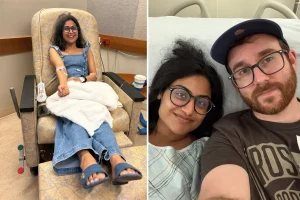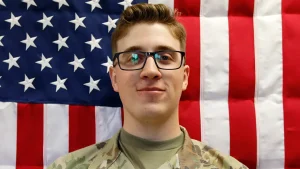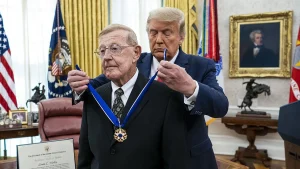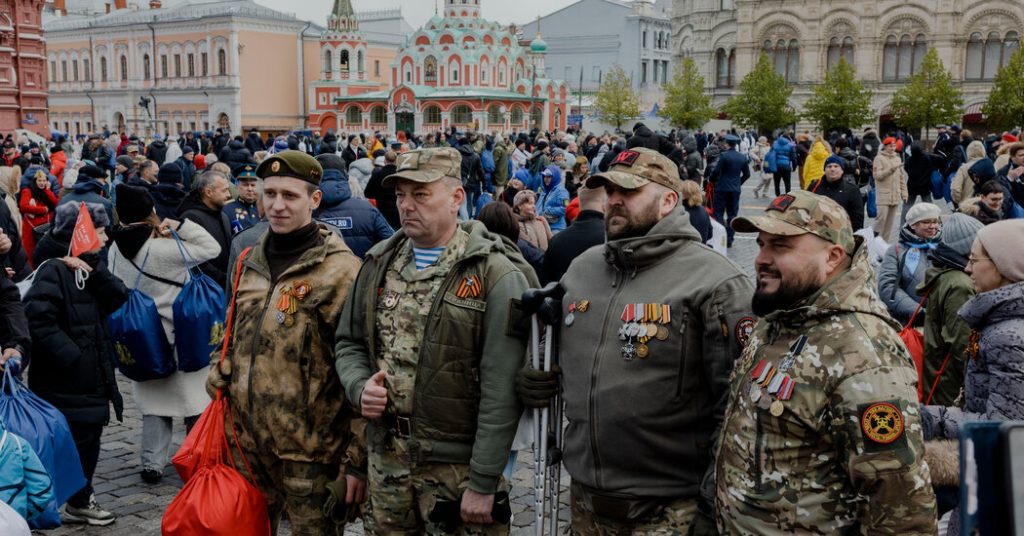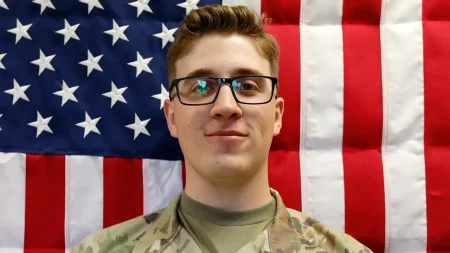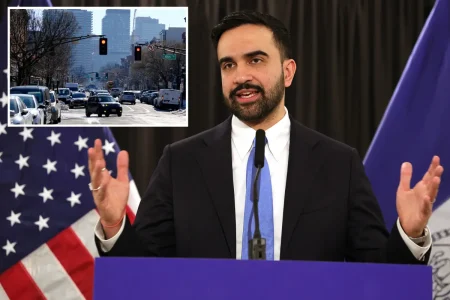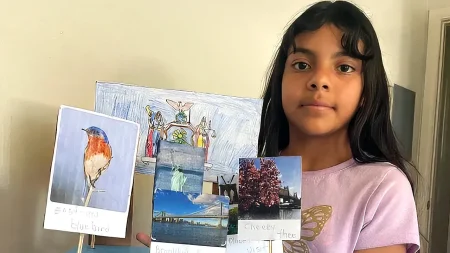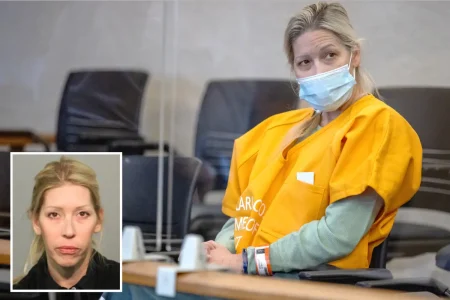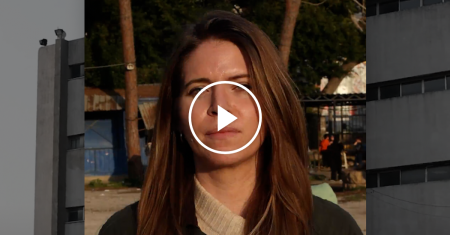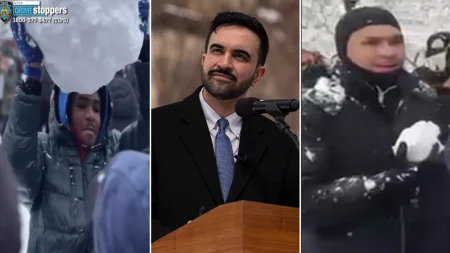The return of Ilya Rusinov to Russian life after suffering a severe injury in the Ukraine war tells an intriguing story that reflects larger shifts in Russian society. While Rusinov’s journey began with teaching after his rehabilitation from a mortar wound that damaged his vertebra, it quickly transitioned into something much more symbolic of contemporary Russian politics. A former Wagner Group fighter, Rusinov launched a patriotic club called Zveno (“Squad”), focused on military training for Russians of all ages, including teenagers. Initially facing challenges, Zveno grew, as demand for its services increased, even attracting other patriotic organizations. This success prompted Rusinov to leave teaching in favor of running the club full-time, a career change that underscored a growing trend in Russia.
Rusinov’s story is emblematic of the Russian government’s broader efforts to elevate war veterans and integrate them into the country’s social and political fabric as symbols of patriotism and sacrifice. Nearly three years after his injury, Rusinov embodies a new class of Russian veterans being reshaped and rebranded in society, as officials attempt to present them as heroes and leaders. Veterans are being called upon to speak at schools, address public forums, and even teach basic weapons training to students as part of mandatory curriculums for eighth grade and above. Billboards celebrating soldiers line the streets, and TV programs like “Ours,” a state-sponsored show on Rossiya 1, romanticize veterans’ experiences with tales of heroism and battlefield ballads.
A Shift in Narrative About Veterans
This energetic effort to integrate veterans into key societal roles marks a stark contrast with how returning soldiers were treated in past Russian conflicts, particularly Afghanistan and Chechnya. Rusinov recalls stories from his father, who fought in Afghanistan for the Soviet Army during an era when the Kremlin sought to downplay its military engagements. Fallen soldiers were returned home in zinc coffins, and surviving veterans were often ostracized or saddled with skepticism. They were seen as individuals who had been through horrific battles only to come back to a society that preferred to forget them, and they often lacked support systems to reintegrate.
In an effort to avoid repeating those grim chapters of neglect, the Kremlin is deliberately reshaping the country’s relationship with its military veterans. This time, injured soldiers are being given more prominence, though critics argue that the support often skims the surface rather than addressing deeper issues like mental health or support for those at the lower rungs of society. Physical or psychological trauma isn’t frequently acknowledged, and rank-and-file veterans often remain excluded from the more glamorous opportunities being presented to a select few.
Leveraging Veterans to Shape National Identity
One of Russia’s most prominent initiatives to elevate veterans is a highly-publicized postgraduate program titled “Time of Heroes.” This program seeks to produce a new “elite” in Russia’s leadership—people who have proven their devotion to the nation by risking their lives. President Vladimir Putin has positioned this effort as a way to reduce the influence of oligarchs and wealthy elites who rose in the chaotic 1990s, replacing them with patriotic veterans who embody loyalty to the state. Speaking during the program’s announcement in February, Putin stated that these individuals represent a class of citizens to whom Russia can “entrust its future.”
The idea of remaking Russia’s ruling class through the Time of Heroes program has attracted significant attention. Its first cohort received more than 44,000 applicants for just 83 available spots, an indication of the program’s perceived prestige. Veterans who join Time of Heroes participate in a mix of management and leadership training and are fast-tracked into administrative positions. Several participants have already advanced to noteworthy roles, becoming regional governors, members of legislative bodies, and senior advisers in state corporations like Rosatom.
One such graduate is Artem Zhoga, a veteran from Ukraine’s Donbas region who became the presidential envoy to Russia’s Urals district and was later invited to join the Security Council. Another participant, Yevgeny Pervyshov, transitioned from being the mayor of Krasnodar to becoming the interim governor of the Tambov region. These rapid career advancements for high-profile veterans have made Time of Heroes a central tool in the Kremlin’s messaging around the Ukraine war.
Creating Public Messaging and Symbols
Time of Heroes isn’t just reshaping the perception of veterans at home—it also serves as a cornerstone of the Kremlin’s public relations strategy surrounding the war effort. Veterans have become symbols of Russian resilience and patriotism, as evidenced by Putin’s recurring references to the program in public speeches. The program has been actively promoted in the media and is receiving significant Kremlin funding. The government even plans to expand it to a regional level.
Furthermore, veterans from Time of Heroes and other programs are entrusted with the task of shaping younger generations through organizations like the Yunarmiya, or “Youth Army,” a militarized group reminiscent of the Soviet-era Young Pioneers. With over one million participants, this organization plays a large role in instilling patriotic values and readiness for military service.
Despite these public successes, critics remain skeptical. Investigative reporting and independent observers have pointed out that Time of Heroes disproportionately benefits career military professionals or individuals already established in government circles. For example, of the 83 veterans in the program’s first class, just three were mobilized soldiers, while nearly 80 percent were high-ranking military personnel. Furthermore, several participants have been accused by Ukrainian authorities of war crimes, raising ethical questions about the program’s implementation and its international perception.
Challenges Behind the PR Campaign
Critics like Andrey Pertsev, a journalist with the exiled outlet Meduza, describe Time of Heroes as more of a public relations tool than a genuine pathway for the average veteran. He notes that many of those showcased as success stories were already in the political or administrative pipeline before joining the program. In some cases, their new appointments are less significant than their previous roles, suggesting that Time of Heroes might merely be repackaging the existing leadership class.
Moreover, systemic barriers prevent upward mobility for ordinary veterans. Applicants generally need university degrees to qualify for the program, leaving large numbers of lower-income and rank-and-file veterans without viable access to its benefits. While these programs focus heavily on patriotic optics, they do little to address systemic inequalities or the lack of mental health support.
The Kremlin’s emphasis on elevating “heroes” through state-backed initiatives has also overlooked the psychological toll of war. Public life rarely features soldiers visibly scarred by combat, either physically or mentally. This sanitization of the veteran experience risks ignoring the real struggles many soldiers face when re-entering civilian life.
Looking Forward
As Russia continues its military operations in Ukraine, the role of veterans like Ilya Rusinov is being increasingly formalized and celebrated through programs like Time of Heroes. Whether giving lectures at schools, organizing patriotic youth groups, or stepping into regional leadership positions, veterans are at the forefront of Moscow’s effort to reshape public perception of the war and inspire a new kind of national identity.
However, beneath the polished surface of state support and patriotic rhetoric, significant challenges remain. Many veterans—especially those without prior status as military professionals—continue to fall through the cracks. Others are left dealing with silent trauma in a society unwilling to openly address their pain.
For Rusinov, his work training the next generation in military patriotism represents a larger mission of giving Russia’s youth a sense of purpose and pride. He dreams of one day building what he describes as a “military version of Hogwarts,” a school imbued with the values of discipline and national loyalty. In the meantime, whether programs like Time of Heroes deliver genuine inclusivity or remain another Kremlin PR tool will shape how a new generation of Russian veterans integrates into society—a reflection of how Russia itself chooses to navigate its history, its identity, and its future leaders.
